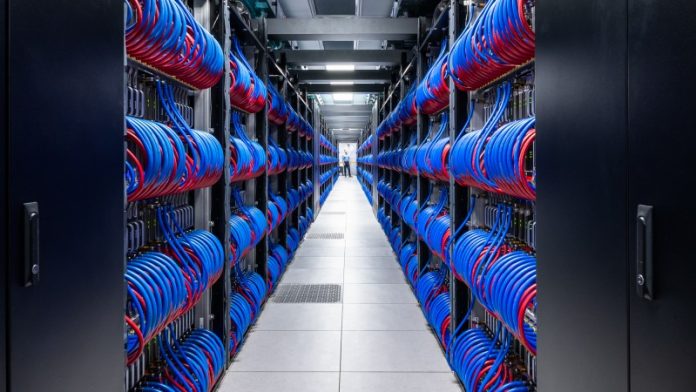Researchers have unleashed the fastest supercomputer in the world in a bold attempt to unravel some of the deepest mysteries of the universe. The Aurora supercomputer at Argonne National Laboratory, capable of performing a quintillion calculations per second, is now delving into the elusive realm of dark matter and dark energy, which make up 95% of our cosmos.
These unseen forces have puzzled scientists for years. While normal matter, which comprises stars, planets, and everything visible, makes up only 5% of the universe, dark matter accounts for 27% and dark energy a staggering 68%. Understanding these hidden components could revolutionize our understanding of the universe.
“The nature of dark matter and dark energy is not understood,” says Salman Habib, Argonne Distinguished Fellow and director of the lab’s Computational Science division. “We know they exist, but we are yet to understand what they are and the fundamental principles that govern their existence.”
The Dark Sky Mining project combines real astronomical observations with extensive computer simulations to create detailed maps of the universe. By utilizing Aurora’s remarkable computing power alongside artificial intelligence, researchers can simulate numerous scenarios of how dark matter and dark energy might behave, comparing these virtual universes to actual observations.
This computational approach signifies a new phase in humanity’s enduring connection with the cosmos. “Fundamentally, what we’re doing right now is simply an extension of that long history of humanity’s connection to the stars, the galaxies, and everything else,” explains Habib. “The ability to delve deep into the universe is quite remarkable because it also reveals a lot about our place in the grand scheme of things.”
The pursuit to comprehend dark matter traces back to the 1930s when Swiss astronomer Fritz Zwicky noticed an anomaly in galaxy clusters— they remained bound together despite lacking sufficient visible mass to generate the needed gravitational force. This led to the concept of invisible “dark matter” providing the additional gravitational cohesion.
Dark energy presented an even more bewildering enigma when astronomers observed that the universe is not only expanding but accelerating in its expansion. This enigmatic force seems to act as a form of anti-gravity, pushing galaxies apart with increasing force across vast distances.
Aurora’s exascale computing capabilities, combined with advanced AI techniques, enable researchers to investigate these phenomena more efficiently than ever before. The supercomputer can swiftly simulate thousands of different scenarios, adjusting the properties of dark matter and dark energy until the outcomes align with real observations of the cosmos.
One innovative approach uses machine learning to significantly minimize the number of simulations required. “So, the point is, we can make the process way more efficient,” notes Habib. This efficiency is critical when modeling universe-spanning phenomena such as cosmic expansion.
The project not only seeks to shed light on the nature of dark matter and dark energy but also aims to prepare for a new era of powerful telescopes that will peer deeper into the cosmos than ever before. The research could aid in resolving other fundamental physics puzzles, including the enigmatic properties of neutrinos— ethereal particles that barely interact with normal matter.
Beyond the specific scientific objectives, the fusion of cutting-edge computing and cosmology hints at exciting technological advancements. As we push the boundaries of our computational capabilities in the quest to understand the universe’s deepest mysteries, we are likely to uncover unforeseen applications that benefit society in ways we have yet to envision.
If you found this piece useful, please consider supporting our work with a small, one-time or monthly donation. Your contribution enables us to continue bringing you accurate, thought-provoking science and medical news that you can trust. Independent reporting takes time, effort, and resources, and your support makes it possible for us to keep exploring the stories that matter to you. Together, we can ensure that important discoveries and developments reach the people who need them most.




